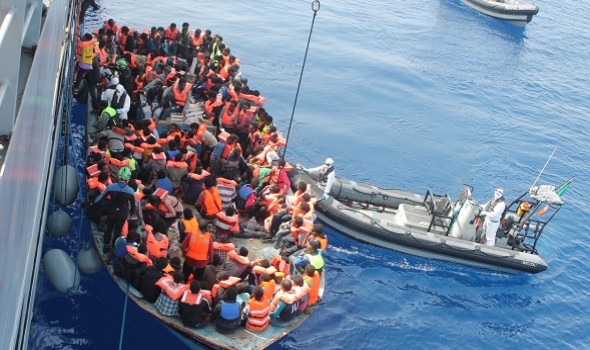Europe must choose compassion over force
Europe must choose compassion over force

As 750 Austrian troops are deployed to the Italian border, powers across Europe are once again choosing blunt force over compassion for some of the world’s most desperate people.
The escalation of military action in and around the Mediterranean represents a worrying trend in policy and thinking – that the current situation at Europe’s borders can be solved with ever more violent border controls.
Already, an estimated 2,000 people have met their deaths attempting to enter Europe this year. Harsher measures will lead to more bodies in the Mediterranean, but will not prevent people coming or in any sense succeed on their own terms.
There is also a line being peddled that NGOs’ presence just outside Libyan waters encourages migrants to risk the journey to Italy. It does not stand up to any scrutiny. It is a spectacular piece of diversion to lay the blame for deaths at the door of those people trying to save lives in chaotic circumstances.
People who are fleeing some of the most dangerous environments on Earth are not going to be deterred – all that ongoing naval operations against smugglers’ boats mean is more people and families trying to cross the sea in dinghies and rafts.
Those who make it to Europe already face beatings, coercion and often extreme deprivation, as well as having to contend with a growing number of anti-migrant attack gangs stalking well-trodden routes. Now, they will also have Austrian armoured vehicles and soldiers to contend with.
The proposal by Italy to close its ports to ships containing migrants in the absence of further EU funding seems in clear breach of international maritime law, and may not go ahead, but is also a worrying escalation. The battle to avoid responsibility taking place between European states has only one set of losers – the men, women and children who have escaped war, persecution, or poverty and starvation.
There is a simple way to reduce irregular migration flows and ease pressure on first response services in European border countries. Last week over 300 civil society organisations met in Berlin to demand a global commitment to safe and legal routes for all those seeking a new life away from hardship. This would include expanding people’s ability to apply for asylum and/or work visas in an organised way.
The regime of Frontex, naval patrols, militarised borders and strained reception centres would not need to exist in its current form if replaced with a pan-European system that met clear commitments on admitting vulnerable people, and allowed people to apply for sanctuary in a fair, managed and regularised fashion. A viable chance at safety is the only effective deterrent to those willing to take desperate measures to secure a new life.
Our international development work, foreign and trade policy must seek to address the root causes of people fleeing – rather than worsening the situation via EU bilateral agreements with Libya and Turkey in spite of mounting evidence of human rights abuses against migrants.
The graveyard in the Mediterranean Sea grows larger every day, with another 50 people presumed dead this week. Countries across Europe have a chance to display real leadership in making the world a safer and more compassionate place, and must step up before it’s too late.


